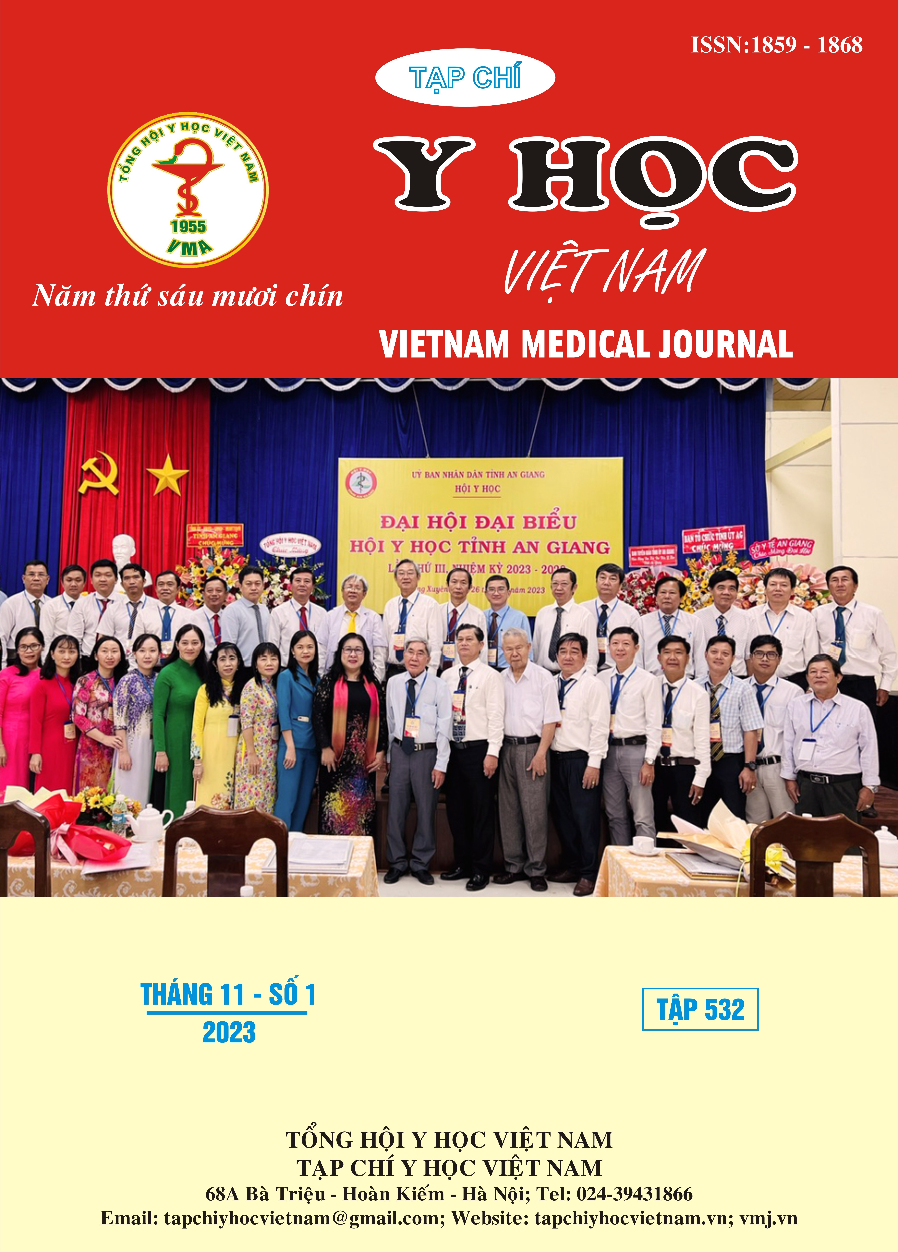RISK FACTORS ASSOCIATED WITH NEONATAL HYPOGLYCEMIA IN PRETERM INFANTS AT AN GIANG CHILDREN'S HOSPITAL
Main Article Content
Abstract
Background: Identifying the risk factors for this condition will help improve prediction and timely intervention, thereby reducing complications for infants. Objective:The objective of this study was to identify risk factors associated with hypoglycemia in premature infants at An Giang Children’s Hospital. Materials and methods:The study was conducted using a case-control method with a ratio of 1:3 on 270 premature infants at An Giang Children’s Hospital. The study subjects were divided into two groups: the case group included premature infants with serum glucose levels <47mg/dL; the control group included premature infants without hypoglycemia with similar parameters. Results: The results showed that premature infants with inappropriate weight for gestational age such as low weight for gestational age (SGA) and high weight for gestational age (LGA) had a higher incidence of hypoglycemia than infants with appropriate weight for gestational age (AGA). Specifically, the incidence of hypoglycemia in the SGA group was 50.7%, in the LGA group was 10.8%, higher than that in the AGA group (38.5%). In addition, infants whose mothers were overweight/obese before pregnancy also had a higher incidence of disease than those whose mothers were normal (23% vs. 8.8%). Especially, infants whose mothers gained excessive weight during pregnancy had a 3.979 times higher risk of developing hypoglycemia than the remaining group. In conclusion: the weight of the infant compared to gestational age and the degree of maternal weight gain during pregnancy are directly related to hypoglycemia in premature infants.
Article Details
Keywords
Hypoglycemia, premature infants, risk factors.
References
2. Medicine Institute of, I. O. M. Pregnancy Weight Guidelines National Research Council Committee to Reexamine (2009), "The National Academies Collection: Reports funded by National Institutes of Health", Weight Gain During Pregnancy: Reexamining the Guidelines, tr
3. L. Y. Wang, L. Y. Wang, Y. L. Wang, C. H. Ho (2023), "Early neonatal hypoglycemia in term and late preterm small for gestational age newborns", Pediatr Neonatol, tr
4. P. C. Holtrop (2022), "The frequency of hypoglycemia in full-term large and small for gestational age newborns", Am J Perinatol, 10 (2), tr 150-154.
5. K. Neal, S. Ullah, S. J. Glastras (2022), "Obesity Class Impacts Adverse Maternal and Neonatal Outcomes Independent of Diabetes", Front Endocrinol (Lausanne), 13 tr 832678.
6. T. Arimitsu, Y. Kasuga, S. Ikenoue, Y. Saisho, M. Hida, J. Yoshino, H. Itoh, M. Tanaka, D. Ochiai (2023), "Risk factors of neonatal hypoglycemia in neonates born to mothers with gestational diabetes", Endocr J, 70 (5), tr 511-517.
7. M. A. Guillén-Sacoto, B. Barquiel, N. Hillman, MÁ Burgos, L. Herranz (2018), "Gestational diabetes mellitus: glycemic control during pregnancy and neonatal outcomes of twin and singleton pregnancies", Endocrinol Diabetes Nutr (Engl Ed), 65 (6), tr 319-327.


